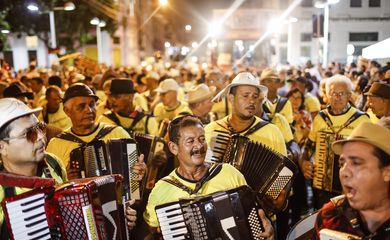
In a unanimous decision, during an extraordinary meeting this Thursday (9), the Cultural Heritage Advisory Council of the National Historical and Artistic Heritage Institute (Iphan) declared the traditional matrices of forró as Brazil's Cultural Heritage.

The council, made up of representatives of public, private and civil society institutions, also elected forró as a musical super genre, as it brings together northeastern rhythms, including xote, xaxado, baião, chamego, quadrilha, drag-foot and the saw foot.
The application for registration to make forró cultural heritage was made in 2011 by the Associação Cultural Balaio do Nordeste, in the state of Paraíba. In the last ten years, in partnership with communities that hold, a detailed description of traditional matrices was carried out with documentary and audiovisual records.
Councilor Maria Cecília Londres, rapporteur of the proposal, gave an extensive explanation about the origins of the Northeastern musical rhythm and the word forró. The reporter highlighted the relevance of forró for encompassing activities such as handicrafts, accordion orchestras, dance schools, preservation of instruments (fiddle, accordion, triangle, fife, zabumba etc).
Maria Cecília also mentioned the importance of forrozeiros organizations, created in several states to keep forró alive. Upon concluding her vote, the rapporteur said that she was fully in favor of registering the traditional matrices of forró as Brazil's cultural heritage.
Text translated using artificial intelligence.





